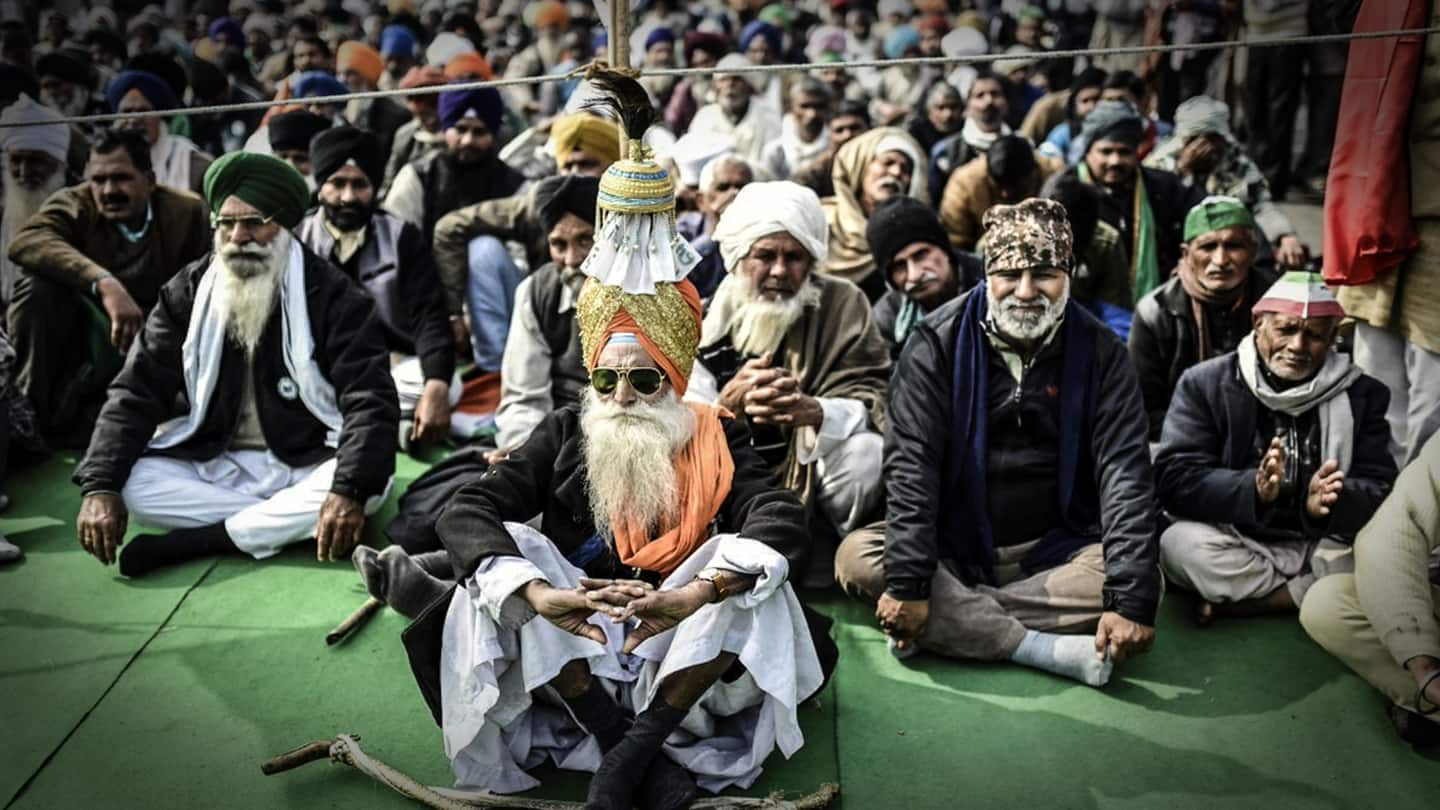
All you need to know about the 'Chakka jam' tomorrow
What's the story
Farmers protesting against the central government's new agricultural reforms have planned a countrywide road blockade or 'chakka jam' on Saturday (February 6).
For months, farmers have continued their protests against the reforms, described as anti-farmer and pro-corporation, calling for their complete rollback.
The 'chakka jam' is the biggest protest since the Republic Day tractor rally descended into chaos last month.
Details
Which regions will be affected?
The blockade has been planned for the National Capital Region, barring Delhi, and the rest of the country.
Bharatiya Kisan Union (BKU) leader Rakesh Tikait—who has been leading the protests since the farmers started camping at Delhi's borders last November—said the "king" has already fortified Delhi, so there is no need for them to lead a blockade in the city.
Information
Blockade to last from noon till 3 pm
The countrywide blockade will continue for three hours between 12 noon and 3 pm on roads and highways. Tikait said that vehicles spotted will be given water and food and informed about what the government is doing to the farmers.
Reason
Blockade in response to Union Budget
The blockade has been called by the Samyukta Kisan Morcha, an umbrella body of 40 farmer unions.
It has been called in response to the Union Budget 2021, which the farmers say "ignored" their demands.
The blockade was also spurred on by the internet ban imposed by the central government at various protest sites near the national capital.
Information
Blockade an ideological revolution, says Tikait
Tikait said the blockade is an "ideological revolution" led by the farmers. It has no connection with phones or social media platforms like WhatsApp, he said in reference to the recent suspension of internet services at the Singhu, Ghazipur, and Tikri border protest sites.
Security
Security heightened ahead of blockade
The Delhi Police has strengthened security at all border points in Delhi. It has set up multi-layer barricades and barbed wires to restrict the movement of vehicles and people at the Ghazipur border.
The Haryana Police has asked senior cops to personally review security and traffic arrangements at key roads/junctions and has directed district police chiefs to ensure the deployment of adequate personnel.
Protest
Farmers protesting against three laws passed last September
The protesting farmers have blocked several of Delhi's borders including Singhu, Chilla, Tikri, Ghazipur, and the Haryana-Rajasthan border.
The farmers have been protesting against the Farmers' Produce Trade and Commerce (Promotion and Facilitation) Act, 2020; the Farmers Empowerment and Protection) Agreement on Price Assurance and farm Services Act 2020; and the Essential Commodities (Amendment) Act, 2020.
The laws were passed in September last year.
Protest
Protesters have camped at Delhi's borders since November
Over several months, the farmers' agitation has only become more intense.
The protests intensified in November-end as thousands of farmers from several states reached Delhi, camping at the city's borders.
Farmers fear that by allowing trade outside APMC mandis, the laws will weaken the mandis and they would be deprived of Minimum Support Prices (MSPs), leaving them vulnerable to exploitation by corporations.
Information
11 rounds of government-farmer talks have fallen through
The Centre has held 11 rounds of talks with farmers and has proposed an 18-month suspension of the laws. However, the farmers continue to push for a complete rollback of the laws. The government has made no indication that it is open to further negotiation.